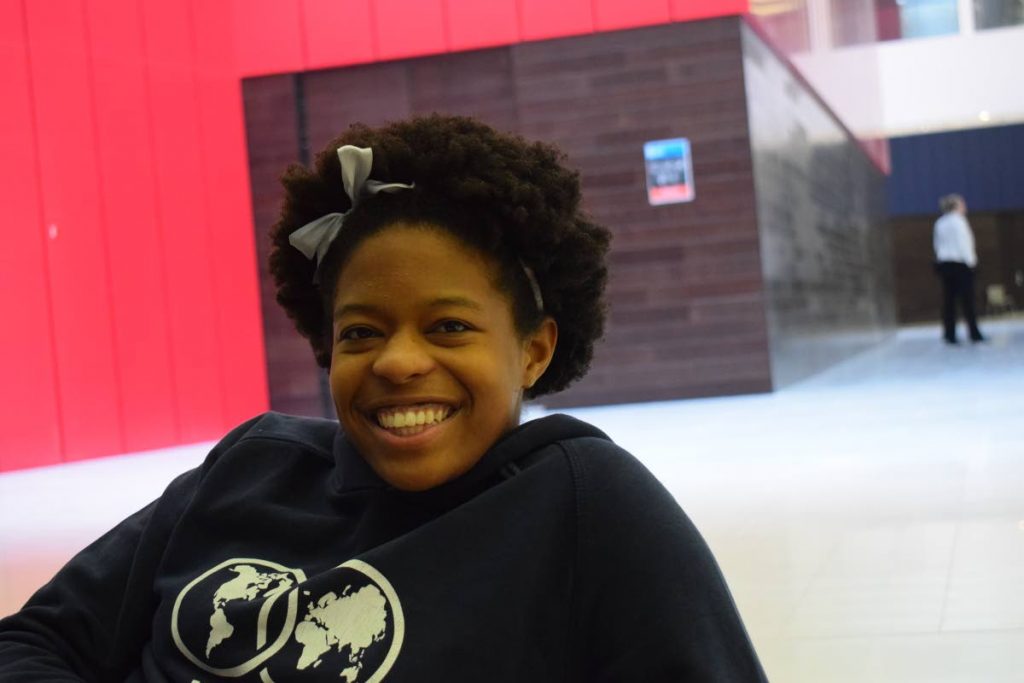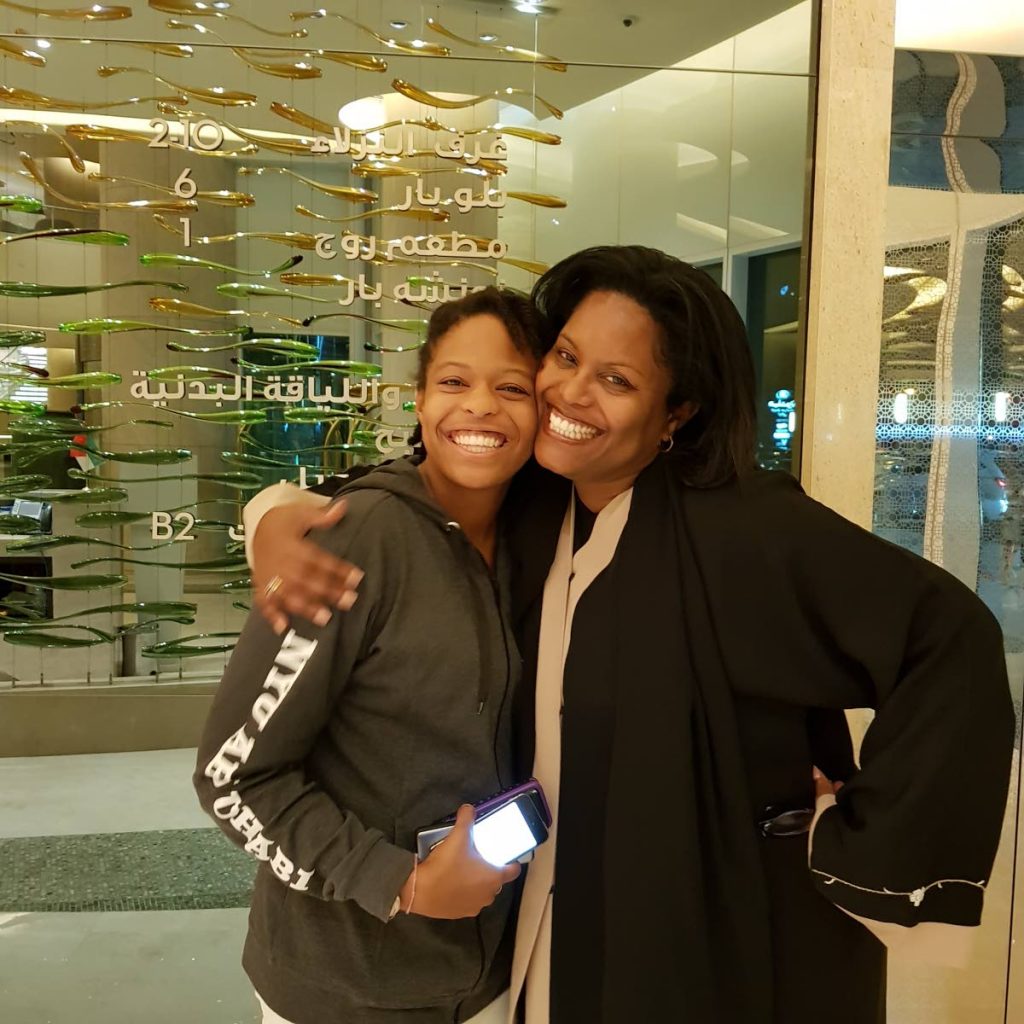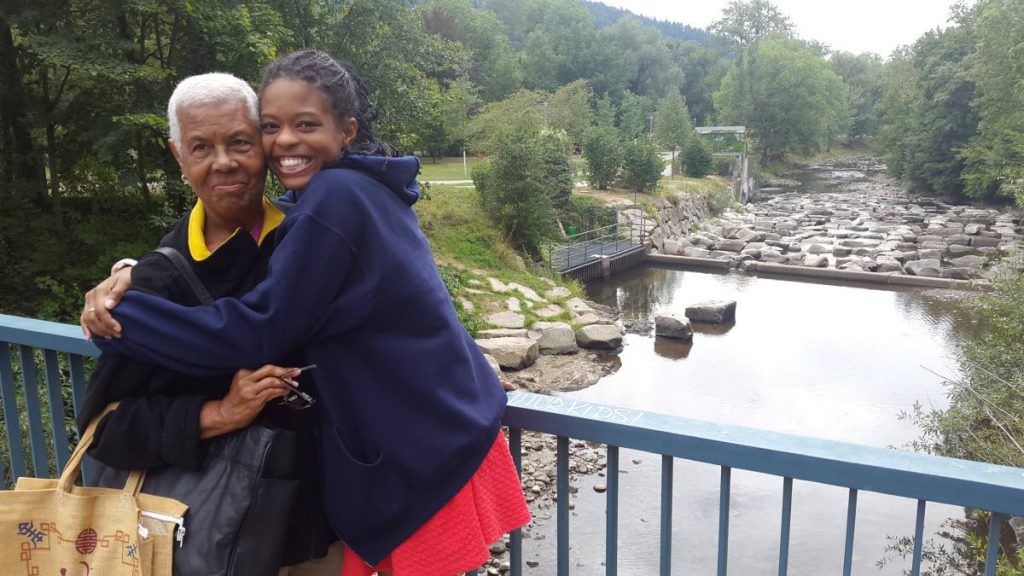The village that raised Gabi

Lisa Allen-Agostini
How do you raise a Gabrielle "Gabi" Branche?
“Be inspired by [...] Gabrielle”, President Paula-Mae Weekes exhorted her listeners on March 19 during her inaugural speech.
Weekes mentioned Gabi’s work on the Triple R Project, a nationwide programme designed to increase students’ awareness of the importance of reducing, reusing and recycling waste. Gabi planned the Triple R Project and raised funds for it, starting with the seed money she got through the United World Colleges (UWC) system, from whose international baccalaureate programme she graduated before going to university.
Weekes herself made the point that we need to "re-engineer" the village that raises our children.
Gabi’s mother, TV producer and entrepreneur Lisa Wickham, makes it clear that she didn’t raise this high-achieving youngster on her own. Instead, she credits a team of family and friends. Leading this village is her own mother, Ursula Wickham.
Gabi, 19, is in her first year as an undergraduate at New York University Abu Dhabi, United Arab Emirates.
Gabi attended Sacred Heart Girls’ RC Primary School and St Joseph’s Convent, Port-of-Spain before leaving to take up a full scholarship at Robert Bosch United World College, Germany. She herself recognises how many people have been in that village raising her.
“I haven’t given enough credit to Sacred Heart and St Joseph’s Convent,” she said in a telephone interview from Abu Dhabi days after The Mention. “They were an integral part in who I am.”
At Sacred Heart all the girls were reminded “Do your best!” she said. The school encouraged extra-curricular activities "ten million activities a day,” she said. “Sacred Heart girls are used to being in everything.” It teaches time management, because extra-curricular activity is never an acceptable excuse for poor academic performance there.
“Parents might say, ‘How could she be in all these things and study?’ But for her the more things she was in she would perform better. She’s been a consistent A student,” said Wickham.
She did everything she could, except karate, Gabi said. At Sacred Heart she won multiple awards for being an Ideal Student; and when then prime minister Patrick Manning asked her school for students to host his annual children’s concert, she was one of the two chosen. She was a member of Bernadette Scott’s Love Movement, and of Nobel Douglas’ Lilliput Theatre.
“Sacred Heart was the formation; St Joseph’s Convent was the application,” Gabi said. She sang with the St Joseph’s Convent Choir. She started the United Way’s youth arm at St Joseph’s Convent. And she still got ten passes at CSEC, all distinctions.
Describing herself as “hyper extroverted”, Gabi revelled in the memory of her activities, especially those with the church youth group she founded at St Theresa’s RC Church, Woodbrook, with Fr Gervase Girod–another member of the village that raised her.
Her arts education helps her, she said. Just the day before the Sunday Newsday interview she and schoolmates at NYU Abu Dhabi had staged a show called Taboo Monologues, based on the internationally famous play The Vagina Monologues. It dealt with topics that are cultural taboos or hard to talk about on a personal level, she said. “That is what art has always been able to do.”

The village comes in again.
“Aunty Noble’s productions always had a political undertone,” Gabi said. “I’m six-years-old and dancing and I hearing about smelter. I don’t know what smelter is, and I’m like, ‘What’s smelter?’ You’re just having a good time and dancing and going on stage. As we got older before we created the piece we would have to discuss what is this topic, what is the issue at hand. Art definitely gives you the possibility to do that.”
Prayer was key, too, she said. In her childhood, “church was always present and always facilitated.” At Sacred Heart, “The whole school was praying six times a day,” she said. Her faith goes with her.
Unlike in the Catholic schools she attended in TT, there was nobody at UWC insisting she pray or go to church. She did it on her own, “even if it meant cycling through the snow in Germany.”
“These schools prepared me for UWC,” Branche said. The UWC system emphasises independence, guiding students to plan extensive and sometimes international projects to invest in their own learning. “UWC was the best two years of my life,” Branche said.

Wickham points squarely at “Grandma”, Ursula Wickham, as Gabi’s bedrock.
Wickham travels a lot for work and Roger Branche, Lisa’s ex-husband and Gabi’s father, lives abroad. Grandmother Ursula, a former school principal, took charge of young Gabi’s day-to-day routine. It was strict.
Gabi had to get no less than ten hours of sleep every night until Form Three, when bedtime shifted to 10 pm. There was no TV except for an hour a day (Jeopardy!, watched with Ursula). She had no smartphone, only a Nokia “metoo”, and wasn’t allowed on social media or to go to parties until she was 18.
“At times I thought the routine was too strict but mummy insisted,” Wickham said.
When Gabi was little, Ursula personally supervised her homework. As she grew older, the supervision became less hands-on but still continued. Ursula went with Gabi to rehearsals for her many, many shows, which Lisa with her hectic schedule couldn’t do.
Busy parents find it hard to be involved in their children’s lives, but that doesn’t mean the children should go without support. The village is important, and Wickham listed Gabi’s godparents, aunties and uncles, teachers and even the parents of Gabi’s friends as those who supported her parenting. Sometimes it’s not how much time you spend with your children that counts, but how you use it.
“The world has changed in such a way that the children that enter this new world have to understand multi-tasking,” Wickham said.
”Before you used to say you have to stay home and take care of the children or they’ll feel you’re abandoning them. But I don’t think children these days see it that way once you provide quality time and quality connection with them, if you find pockets of time and moments. For Gabi and me that was in the car. We had no phones turned on in the car, no radio, no digital devices. We’d just chat. And I had to listen to (books featuring young adult fiction character) Percy Jackson and then she’d quiz me. We’d play games in the car. Or we’d sing."
"Obviously I’d have wanted to spend more time with her but it just wasn’t possible. I think she has a stronger affiliation with mummy than me,” Wickham admitted. “But that’s fine, I’m okay with that. I think it’s wonderful.”
When Gabi talks about achieving her goals she talks about discipline. But she also talks about hearing her mother's voice in her head saying, " If you commit to something you have to do it." Gabi has taken her village with her.


Comments
"The village that raised Gabi"